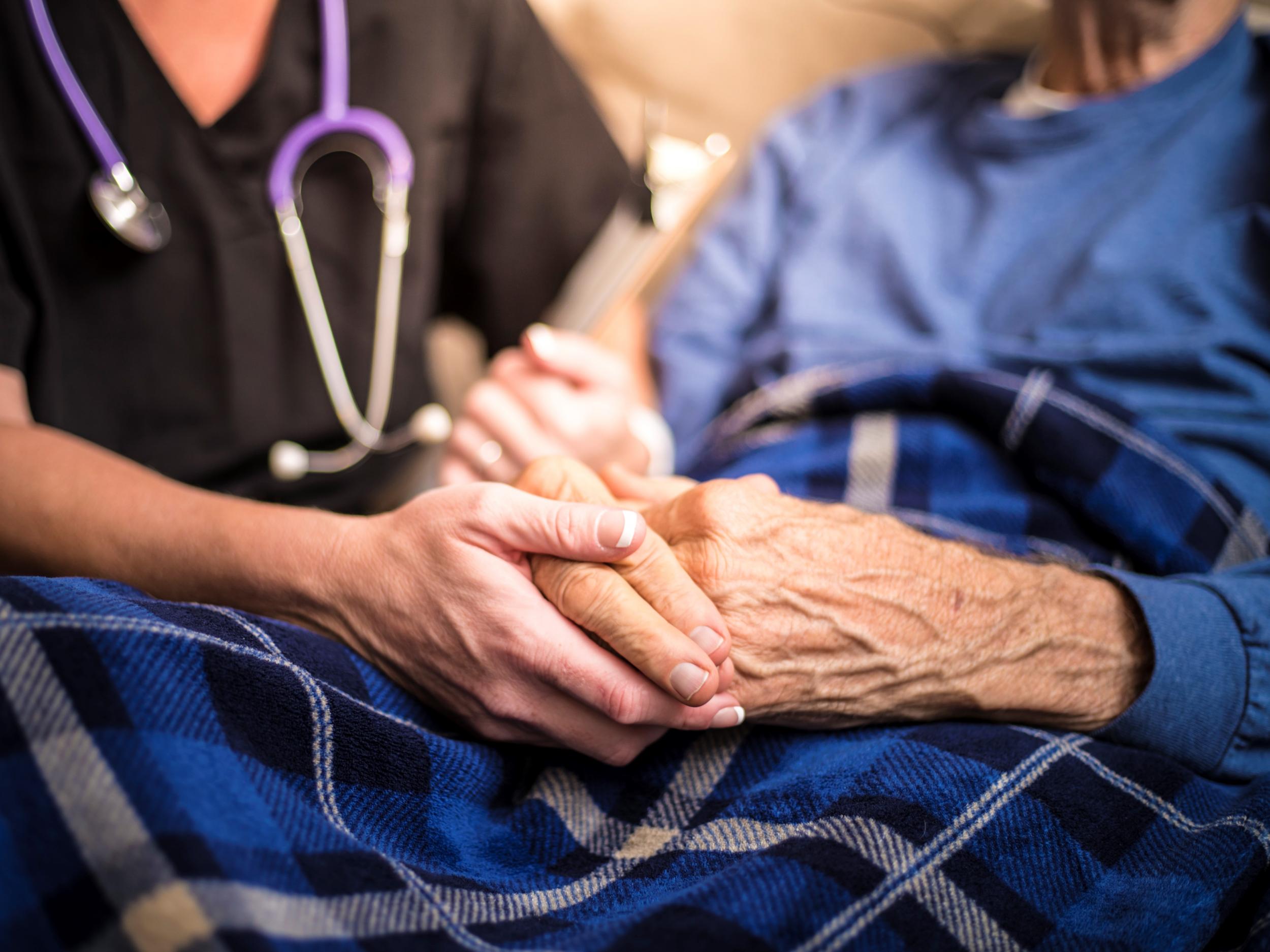Of course we should fight to save lives – but those dying of coronavirus deserve to do so in dignity
The soon-to-be-opened Nightingale Hospital suggests Britain is constructing an industrial machinery of critical care. Yet it is unclear whether we have a parallel infrastructure for palliative care, writes Yasmin Gunaratnam

Today deaths from Covid-19 rose by 684 on to 3,605. The government’s “herd immunity” approach, inadequate testing and provision of personal protective equipment have all contributed to the UK’s failure to minimise this number.
Behind this statistic, however, lie important questions about how we die and mourn. Over the past couple of weeks, medical and palliative care professionals have been urging us to talk more about end-of-life planning, rightly anticipating that Covid-19 dying will be unlike anything we have experienced before.
The soon-to-be-opened Nightingale Hospital suggests Britain is constructing an industrial machinery of critical care. Yet it is unclear whether we have a parallel infrastructure for palliative care. Not all medical professionals will have had training in how to break bad news, counsel patients and loved ones, or cater to multi-faith needs. I can’t imagine there will be much capacity in overstretched hospitals to angle a bed towards Mecca, place a Tulsi leaf on a forehead or perform last rights; in New York, the dead are being fork-lifted into refrigerated lorries, as the city’s morgues fill up.
Then there is the question of how we mourn our dead, as with Covid-19, we are unlikely to be with our loved ones in their last moments.
“People will struggle to make sense or meaning of a death when ... separated from the person they love in their final hours with no possibility to say goodbye, or perform a ritual in person,” the Reverend Andrew Goodhead, spiritual care lead at St Christopher’s Hospice in London, told me. “A question for healthcare staff now is how technology can enable the saying of ‘goodbye’ and ‘I love you’ or the performing of a correct ritual, using a video link.”
An example of such an alternative ritual came from Joanna Midgely talked to Channel 4 News recently about her mother’s death of coronavirus. Joanna had been allowed to see the 82-year-old Pat Midgely on a Covid-19 ward before she died;she had to wear a mask, gown and gloves, and wasn’t able to touch her mother. “This is a completely different way of people ending their lives. It’s not what we’re used to,” Midgely said. “It doesn’t feel right. But that’s the way at the minute”. Joanna talked warmly about the staff of the Northern General Hospital, who read out cards and messages to Pat in the minutes before she died.
Because of restrictions on the numbers of people allowed at funerals, the Midgely family is planning a memorial after the pandemic rules have lifted. Public Health England has released new guidelines urging faith leaders to ensure social distancing at funerals. The restrictions will disrupt different cultural farewells, such as Irish wakes and Caribbean nine nights. While the events can be put on hold, grief is not so easily postponed.
Another mounting worry is that with pressure on critical care, doctors will be forced into rationing. As doctor and Labour MP Rosena Allin-Khan put it, who will get the last ventilator? The British Medical Association (BMA) has produced new guidance for doctors, should we reach a situation where need overwhelms resources. John Chisholm, chair of the BMA’s medical ethics committee, has said that in such extreme conditions, the principle of “first come, first served”, for those who have the “capacity to benefit” from life-saving care, is preferable to a more laissez-faire approach. Chisholm recognises that such decisions will be controversial. There will be anger and pain. He is right.
A day before the BMA issued its guidance, a Welsh GP practice had to apologise to its patients with life-limiting illnesses for sending them a letter asking them to complete “do not resuscitate” directives. Patients were advised not to call for an ambulance should they need emergency care, so that “scarce ambulance resources can be targeted to the young and fit”. One of the letter’s recipients, Elizabeth John, said it made her feel worthless.
Hospices, from which palliative care originates, were a velvet revolution in medicine. Cicely Saunders, the founder of the modern hospice movement, challenged poor standards of care for dying and bereaved people in the 1950s and 60s, a time of antipathy to palliative pain relief and aversion to the dying.
While the popular focus on protecting the living is essential, we should not forget to care, as Saunders did, for the dying.“You matter because you are you,” said Saunders, “and you matter to the end of your life”.
Join our commenting forum
Join thought-provoking conversations, follow other Independent readers and see their replies
Comments